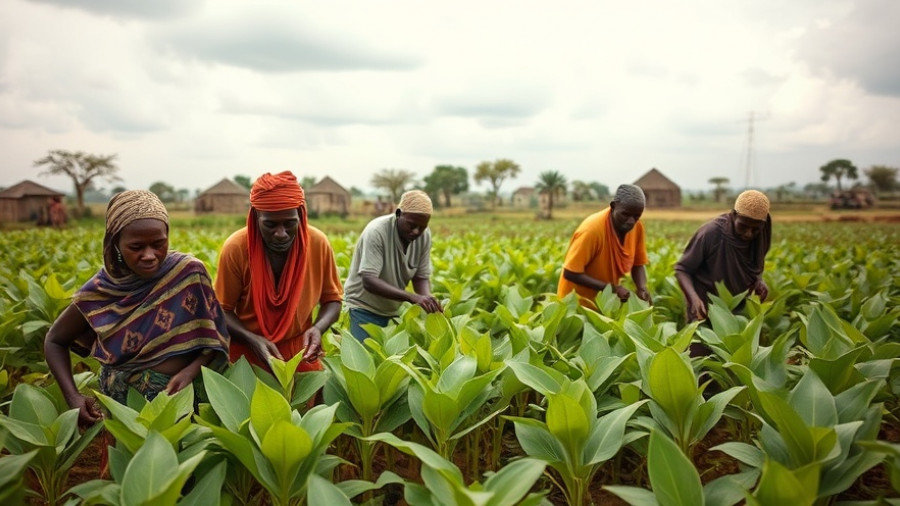
Understanding the Global Food Crisis: Over 670 Million People Hungry
As the world grapples with a staggering humanitarian crisis, more than 670 million people find themselves in peril, battling hunger in various forms. This crisis is far from an incidental statistic; it reflects intertwined issues rooted in conflict, climate change, and global economic instability. To grasp the full scale of this crisis, we must analyze its root causes and impacts, particularly within vulnerable regions such as Africa.
The Interconnection of Conflict and Hunger
Conflicts are not merely regional disturbances; they have dire implications on food availability and security. In a world where nearly 70% of those facing severe hunger reside in conflict-hit areas, countries like Sudan, Yemen, and parts of Eastern Africa exemplify the devastating intersection between violence and food scarcity. Political instability disrupts agricultural production, exacerbating vulnerabilities and forcing many into displacement—stripping them of livelihoods and access to food.
Climate Change: A Silent Catalyst for Hunger
Climate change is no longer a looming threat; it is a present reality that has intensified the food crisis. Shifts in climate patterns lead to unpredictable crop yields and extreme weather conditions. In regions heavily reliant on agriculture, such as the Sahel, increasing droughts further complicate food production. The United Nations reports highlight that climate-related shocks are crippling the food systems necessary for survival, and immediate action is crucial to mitigate these risks.
The Economic Ramifications of Hunger
The economic landscape also plays a pivotal role in exacerbating hunger. Global economic strains, particularly following the COVID-19 pandemic and geopolitical tensions—such as the Ukraine conflict—have stifled investments vital for building resilient food systems. As food prices soar, nations struggle to invest in programs that could alleviate hunger. The World Food Programme has indicated that without coordinated efforts to boost economic resilience, many nations may face worsening food insecurity.
Policy Frameworks for Sustainable Solutions
Addressing this multifaceted crisis demands innovative policymaking and frameworks that transcend borders. Reflecting on successful interventions, such as the collaborative efforts seen in Somalia, we recognize that humanitarian aid alone is insufficient. Solutions must include bolstering agricultural resilience, enhancing trade policies, and ensuring that countries can access essential resources without barriers.
The Call to Action
The urgency of these challenges cannot be overstated. Policymakers, business leaders, and NGOs must intensify their commitment to global food security. It's imperative to forge pathways for effective international collaboration that lifts the most vulnerable from the depths of hunger. As we face these challenges, the potential for sustainable progress remains within our grasp.
For those interested in making a tangible impact, consider exploring partnerships that prioritize food security in Africa. Invest in initiatives that align with strengthening agricultural systems and fostering trade relationships that benefit both local economies and global markets.
 Add Row
Add Row  Add
Add 


Write A Comment